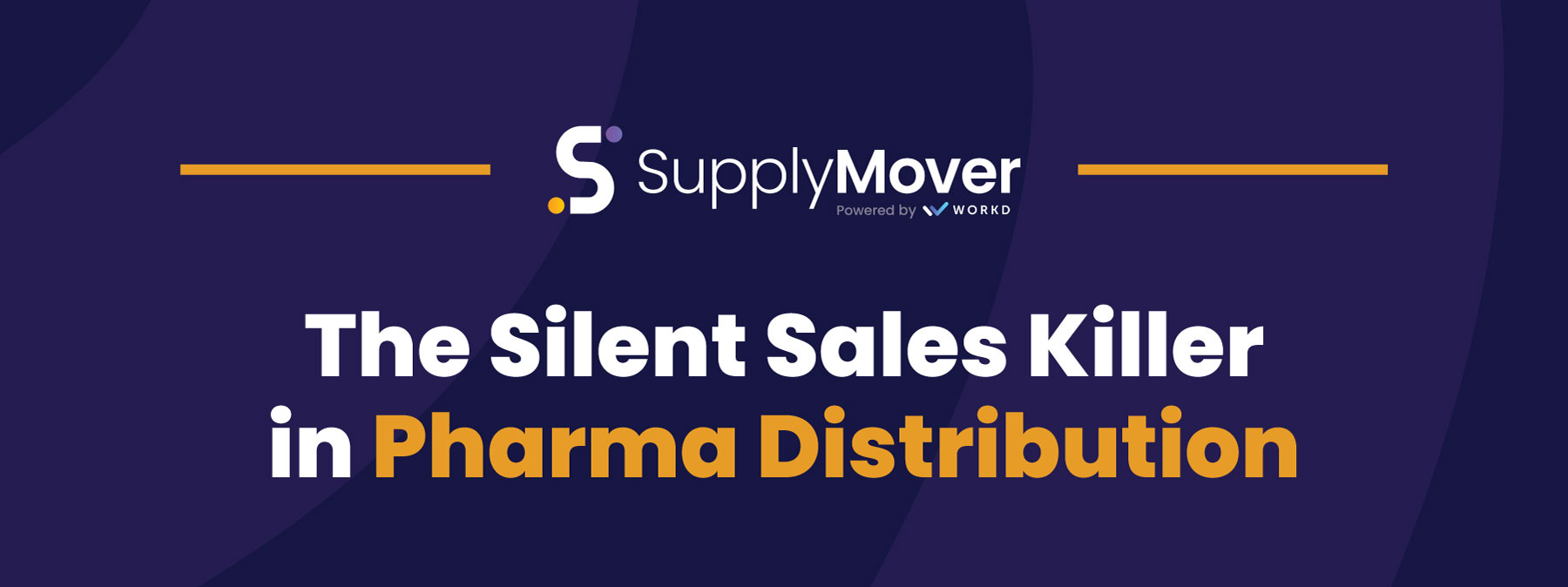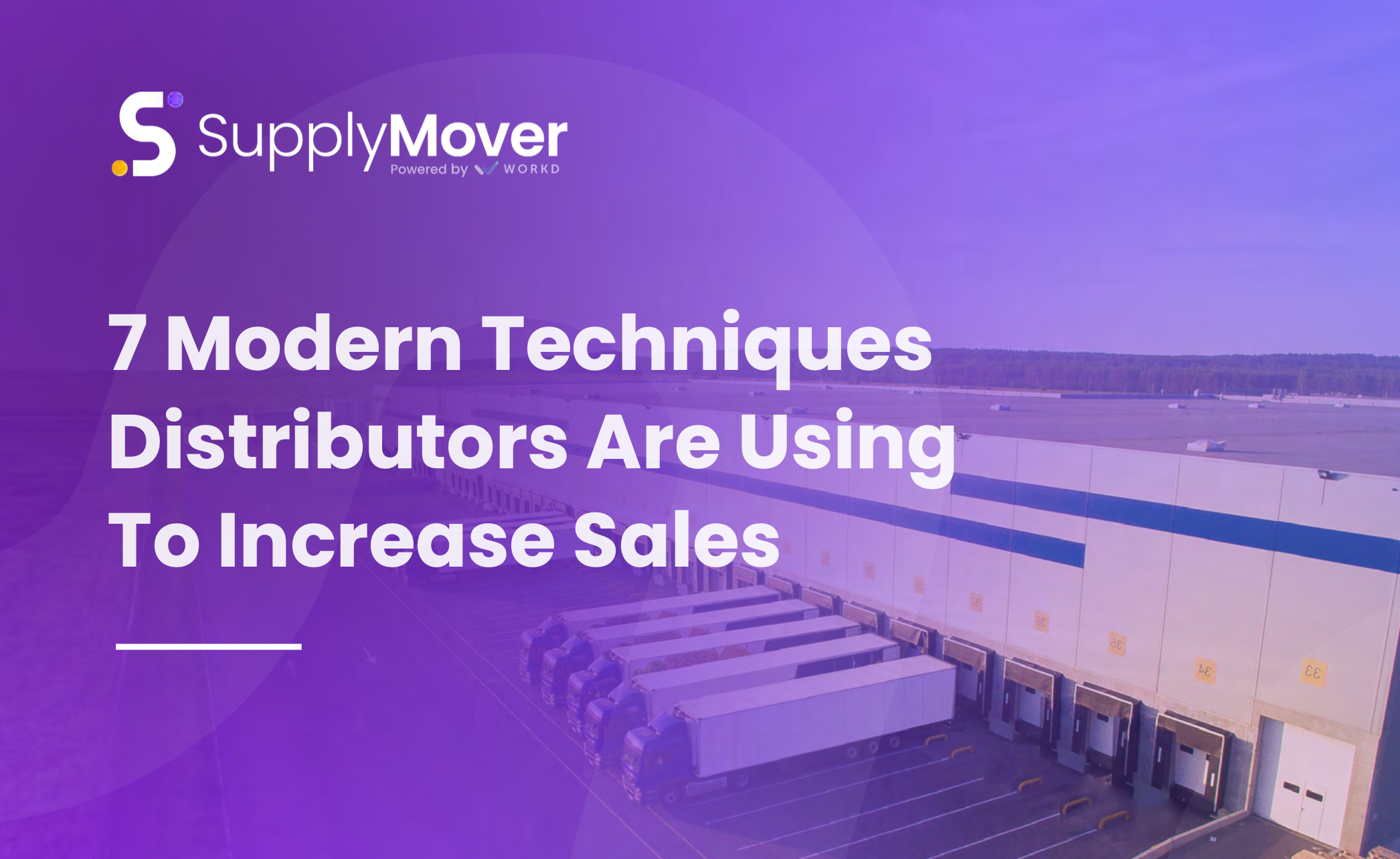The Silent Sales Killer in Pharma Distribution

Here’s how pharma distributors are fixing the gaps before they cost revenue.
Pharma sales run on timing.
Every day, reps are expected to move fast — calling dozens of customers, quoting new leads, processing orders, and following up on reorders. It’s a pace that rewards precision and punishes hesitation.
But what happens when just one follow-up doesn’t happen?
A reorder that slips through. A cart that doesn’t get processed. A customer who hasn’t heard from their rep in a little too long.
It doesn’t take much for a missed call to turn into a missed sale. And the truth is, in pharma distribution, those gaps add up fast — even in high-performing teams.
Let’s take a look at why it’s happening, how it flies under the radar, and what leading distributors are doing to fix it.
The Reality of a Rep’s Day
Each day involves dozens of tasks across dozens of accounts, often with zero room for delay.
They’re building carts for customers who need same-day shipping. They’re quoting new leads who need accurate pricing, fast. They’re checking in on licensing details, state-by-state requirements, and NDC restrictions. And they’re expected to do all this while hitting call quotas, staying compliant, and managing an unpredictable schedule.
The problem is that most systems they’re using weren’t built for this rhythm.
ERP platforms are designed to process orders — not to help reps keep track of who they’ve called, which accounts need follow-up, or what’s still sitting in a pending cart at 3:58 PM on a Friday.
When a day moves this fast, even the best reps lose visibility.
Where Things Go Off Track
On the surface, everything might look fine. Orders are going out. Calls are getting logged. But underneath, the cracks start to appear:
- A follow-up that didn’t happen when it should have
- A quote sent but never followed up on
- A rep who forgot to revisit a customer that didn’t pick up last week
- An order that was never finalized because the cart got buried under a dozen others
The issue isn’t laziness. It’s the fact that nothing in the rep’s workflow is built to catch what slips between the cracks.
In pharma sales, what gets missed can’t always be made up for later.
Why Timing Matters More Than You Think
Unlike other industries, pharma customers often order with urgency. If an order doesn’t ship today, the customer might not just wait — they might place it somewhere else.
Consistency and timing are everything.
The rep who follows up a day late may find the opportunity gone. The customer who goes too long without hearing from their rep might assume they’ve been deprioritized. In a space where trust and timing are paramount, the cost of small delays is steep.
It’s not about working faster. It’s about being able to work at the right time, with the right information.
Spotting the Silent Revenue Leaks
Here’s the thing: most distributors don’t even realize how many opportunities they’re losing due to missed timing. That’s because the signs are subtle:
- Reorders that dropped out of the usual cadence
- Customers who didn’t reorder this cycle and no one noticed
- Quotes sent but never converted — with no follow-up
- Reps hitting call goals but still missing key accounts
These aren’t problems that show up in end-of-month reports. They’re hidden in the day-to-day swirl of activity.
And once you start seeing them, it’s hard to unsee.
What the Best Teams Are Doing Differently
The highest-performing pharma distribution teams focus less on adding headcount and more on optimizing how reps spend their time.
They’re using real-time activity tracking to see exactly which accounts have been touched, which haven’t, and what’s still sitting in limbo. Their reps know which carts are unprocessed, which quotes are going stale, and which calls are due — not at the end of the week, but as it’s happening.
They’re treating time as a limited resource, and designing systems that make the most of it.
It’s Not the Reps, It’s the System
The truth is, most reps want to do the right things. They don’t mean to forget that quote or miss that call. But if the system isn’t giving them clear visibility into their day, the best intentions still lead to lost sales.
It’s not a personnel issue. It’s a visibility issue.
Once that’s solved, productivity improves, stress levels drop, and reps feel more in control. Managers don’t have to micromanage. And customers get more consistent, timely service.
Making Time Work For You
Imagine a rep walking into their day already knowing:
- Who hasn’t ordered in two weeks
- Which quotes need follow-up before EOD
- Which accounts are due for a check-in based on call cadence
- Which orders are still in cart and need attention before cutoff
That kind of clarity improves efficiency, protects revenue, and reduces mental load. Most importantly, it frees reps to focus on what matters most — building relationships.
Because at the end of the day, pharma sales is still about people.
Fixing the Invisible Problem
The missed call problem doesn’t always scream for attention. But it quietly costs you every week — in dropped reorders, unconverted quotes, and customers who don’t feel seen.
Fixing it isn’t about throwing out your ERP or overhauling your business. It’s about giving your reps the visibility and support they need to act at the right time, every time.
Because in this industry, that’s the difference between good enough… and great.
If you’re starting to recognize these challenges in your own team, you’re not alone. Many pharma distributors are realizing that better timing isn’t a luxury, it’s a competitive edge.
At SupplyMover, we help distributors bring visibility, structure, and smart automation into their daily sales flow — all without replacing the systems they already rely on. Want to learn how it works?





